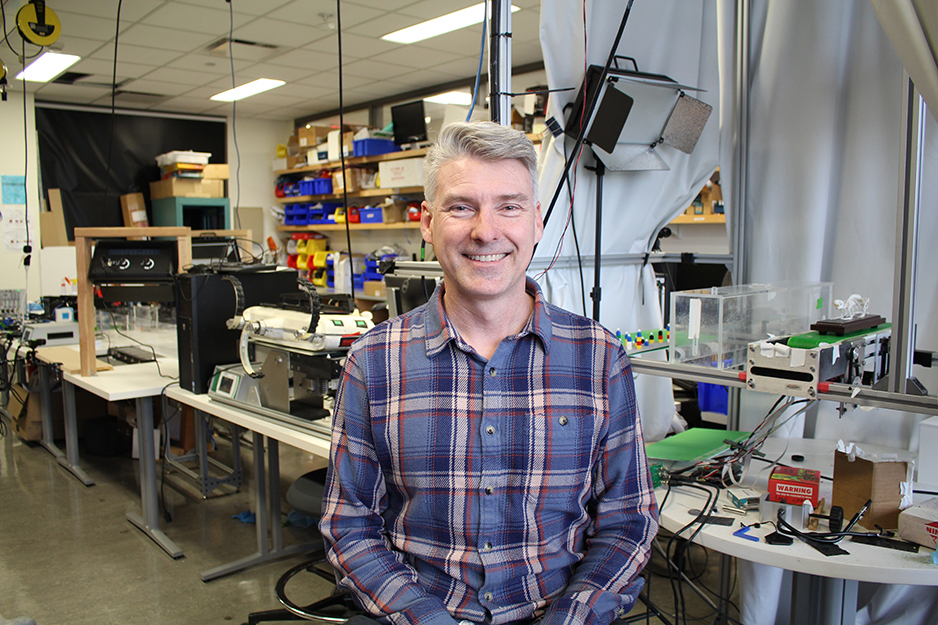Dr. Andrew Spence, Associate Professor of the Bioengineering Department, will be honored as one of this year’s recipients of the Lindback Distinguished Teaching Award.
Through the Christian R. and Mary F. Lindback Foundation of Philadelphia, the Lindback Distinguished Teaching award honors teaching excellence both in the classroom and clinical settings.
The child of two professionals in academia, Spence credits his parents, one a child psychologist and the other a physics professor, with instilling in him his teaching philosophy: an emphasis on enthusiasm.
“[My] Dad always used to say that really enthusiasm is the key, and my mother loved figuring out how children’s minds worked with her students,” said Spence.
He believes that science and engineering are fundamentally exciting, and showing your enthusiasm to students helps make them excited to learn as well.
While putting enthusiasm first always seemed to be working based on student success, Spence would occasionally second-guess his methods, however the Lindback Award has quieted any doubt in his mind.
“[This award] makes me feel better that my informal, enthusiasm-based approach is working,” he explained, “coupled with students going on to elite graduate programs and getting great jobs in industry, I feel honored to be appreciated for helping to launch these students into their professional lives. I mean, most of the time it’s a lot of fun.”
Spence has been teaching at the College of Engineering for over 10 years in the Bioengineering Department and leads the Spence Lab, which focuses on neuromechanics, gait, and spinal cord injury.
With a background in physics, Spence received his PhD from Cornell in the Applied and Engineering Physics Department with a focus in neuroscience and biomedical microdevices, combining his love of physics with an interest in biology.
He lived in London for several years while working at The Royal Veterinary College, additionally taking the time to learn more about effective instruction and receiving a certificate in postgraduate education.
“While I think enthusiasm is a fundamental component; formal training in the educational literature is great because it gives you a bigger toolbox; you know the stages of intellectual development students typically go through and how to foster that growth,” he stated.
Spence’s entire career has been in academia and has been teaching and mentoring since 2009.
In the classroom, he adopts an informal approach. Lessons are interactive and discussion-based, with a focus on truly understanding content, and not just memorization.
As the leader of the Spence Lab, he works with students ranging from undergraduate to postdoctoral, and greatly values his role as a mentor.
“When students show up and work really hard, it inspires me and I learn a lot from them; in return I try to help them become scientists,” explains Spence. For the students in his lab, he works with them to find assignments that can help them with their future career goals.
Spence cites student growth and success as his favorite parts of the job and hopes to continue his career focusing on helping others, both as a researcher and a mentor.
He will be presented with the award at a private ceremony on April 10.

